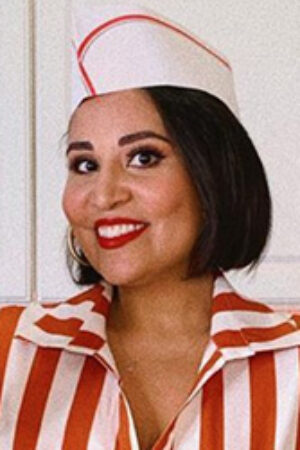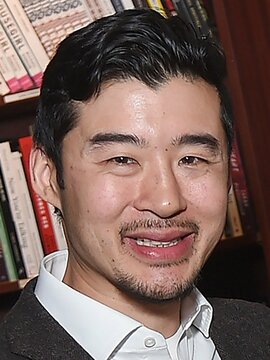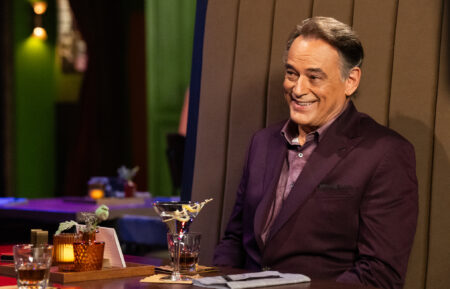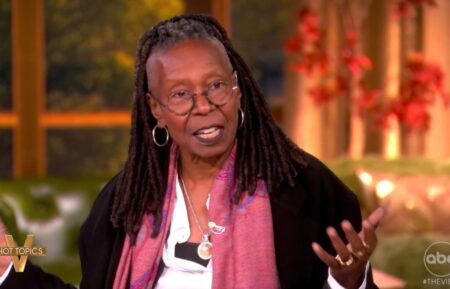Meet the ‘Great American Recipe’ Season 3 Winner: Adjo Honsou
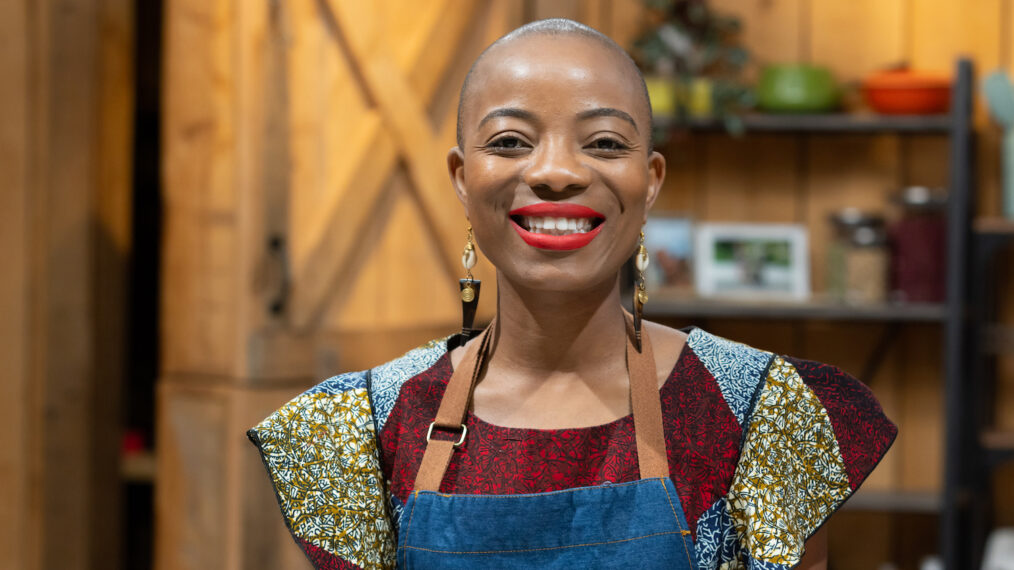
Q&A
Togo-born dynamo Adjo Honsou has won Season 3 of PBS’s The Great American Recipe, the warm-hearted cooking show whose competitors represent cuisines from different regions of the United States and often, the countries they or their ancestors originally hail from.
Adjo, a former bio tech scientist, impressed judges Francis Lam, Tim Hollingsworth, and Tiffany Derry, with dishes from her early years in the West African country. TV Insider asked her about the experience on her show, her favorite dishes, and the future with food.
How does it feel to be the winner on The Great American Recipe’s third season?
Adjo Honsou: It feels wonderful to be able to represent my culture and heritage and sharing it with such phenomenal cooks. I really, really loved it.
As this season’s champ, what are you rewarded with?
This season I know that PBS is not doing a cookbook, but I think there is an e-book that the winning recipe still appears on.
Your dishes looked yummy. I was in Southern Africa for a month a while back, and none of the food looked as interesting as your West African entries. Which of your dishes on the show are you most proud of?
The Okra stew is everybody’s favorite. It’s in my DNA because it’s something that’s very embedded in my culture, a staple food back home. I was very happy to display that and to hear Chef Tiffany comment on how she grew up eating gumbo and she now has seen the connection between the way it’s made in East Africa and how her grandmother used to do it [in the American South].
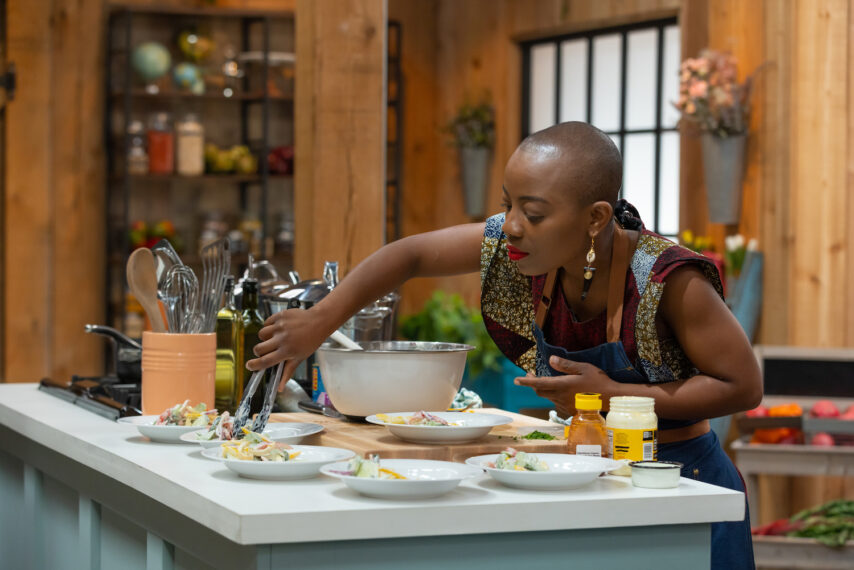
PBS
When did you and your family come to the States?
We moved to the U.S. when I was 14, so a good part of my upbringing was in Togo, which is nestled between Ghana and Benin. It’s a very tiny country about the size of North Carolina.
You barely have an accent in English. Wasn’t Togo’s official language French?
Yes, the national language is French, but my primary language is Ewe—that we spoke in the house. I also speak a bit of Aja, which is my mother’s tongue. I didn’t speak English until I moved to America.
Some of your ingredients are not easy to find. On the show, you cooked plantains, taro root, goat, and other foods not necessarily seen in most supermarkets.
You wouldn’t see a lot of these foods in your regular stores, but you can in specialty markets. In St. Louis, where I live, we’re fortunate to have a very bustling immigrant community and some of the vegetables cross cultures. So I can go to a Taiwanese or Vietnamese store and find taro and cassava. They may use it differently, but it’s the same food.
The judges like a starch you used several times called fufu. That seems to take a lot of stirring; it’s quite labor intensive.
Back home, fufu is a staple kind of like how mashed potato is to Americans. It’s made with either plantains, cassava, or yam, and it coats the belly. What you saw on TV was a modern version of it. Because the root vegetables are sort of dried and dehydrated and turn into flour, all you have to do is rehydrate it and then just cook it on the stove top. The authentic way to make it is taking those root vegetables in the raw form, boiling them, and then pound it until it’s transformed from a solid form into a dough. All the aunties and grandmothers do their part making it. It’s a community project.
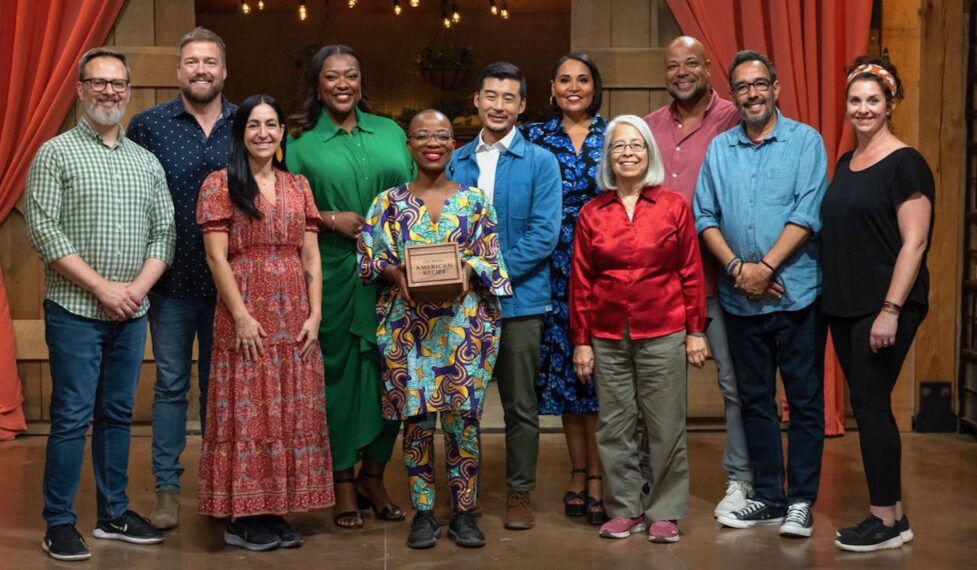
PBS
Does it taste a little like mashed potatoes?
It does, but just firmer, and it has the flavor of whatever roots you’re using, like African yams—they’re not anything like the candied yam or sweet potatoes used here.
You cooked huge chunks of goat and meats, enormous pots of fufu, and more. Is that quantity usual?
That’s a cultural thing; back home, we were a very communal society. You cook for lots of generations who are around the house. Because of that, I never learned about proper portions. [Laughs] One of the biggest challenges for me on the show was writing down measurements. I’d send the show everything I wanted for an upcoming meal, and they’d be like, “Adjo, you didn’t write down how much you need!” I’d be, “Gimme a bunch of this and a little bit of that,” and they didn’t know what I meant. I didn’t learn to cook by measuring, just by watching and practicing it until I got it right.
Timing was a problem with the cooks on the show because they gave you all a very short time for complicated dishes, true?
Yes, we had complex recipes, and it would take time to achieve all those things.
For Americans who have never cooked African food but would like to, what would you suggest they try first?
I would definitely say out of the recipes I prepared on the show, the easiest thing to make was the Efo Egusi stew I made in Episode 2. It’s a spinach-based stew with melon seeds [and] tomatoes—completely vegan and very healthy. It has the least amount of technique needed. All the ingredients can be found in Nigerian markets or a world food store. Just make sure you use fresh palm oil. You can get my fufu and curry sauce on our website, Fufu n’ Sauce.
That sounds cool. I’ll check it out. What food did you taste on the show made by the other cooks that you definitely want to add to your menus?
Oh my goodness, I love the tarts that Tim made with raspberries. He won the baking challenge with them. I’m not a baker, but I would love to try my hand at those delicious raspberry tarts!
Has this experience inspired you to write an African-centered cookbook or start a restaurant?
Definitely a cookbook is on the way, which would also get into my African fusion side, which means sometimes I loving adding one new ingredient to fuse it with my African elements. Like oxtail tacos, panang curry—the African way. I try to change things a little bit to make it my own. We have a food truck and we are currently looking for a brick-and-mortar space in St. Louis. We want to be able to support and serve that community as they have been supporting us.
What would you describe as the highlight of your time on the show?
The highlight of being part of The Great American Recipe is having seven other people that will be part of your life for a lifetime. One of the first questions that I asked when they were reaching out to cast me was, “Wait, this is not mean, is it?” [Laughs]
Are you teaching your kids to cook? How old are they?
Olivia is 12 and Harrison is 11; they’re in the kitchen with me sometimes, but they don’t always love my cooking, especially the vegetable dishes. But Harrison loves my oxtail.
The Great American Recipe, Season 4, Summer 2025, PBS



